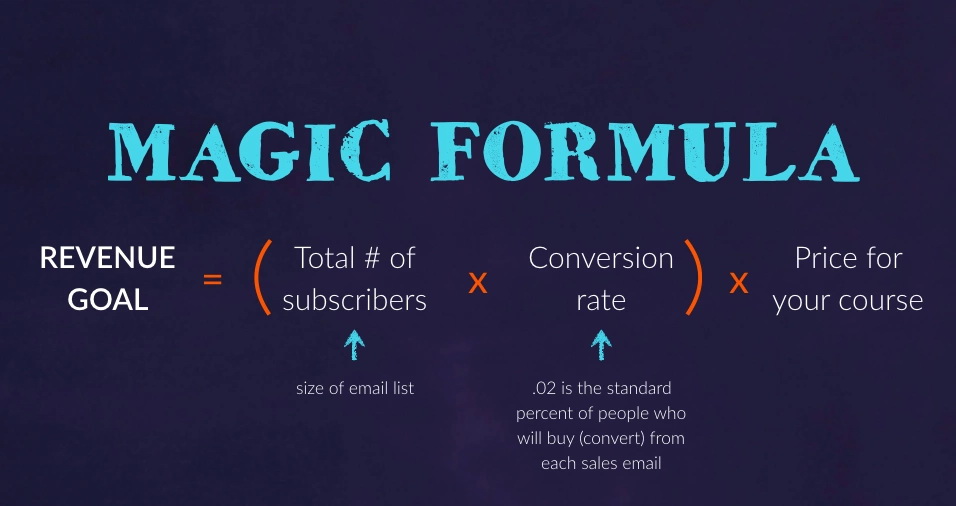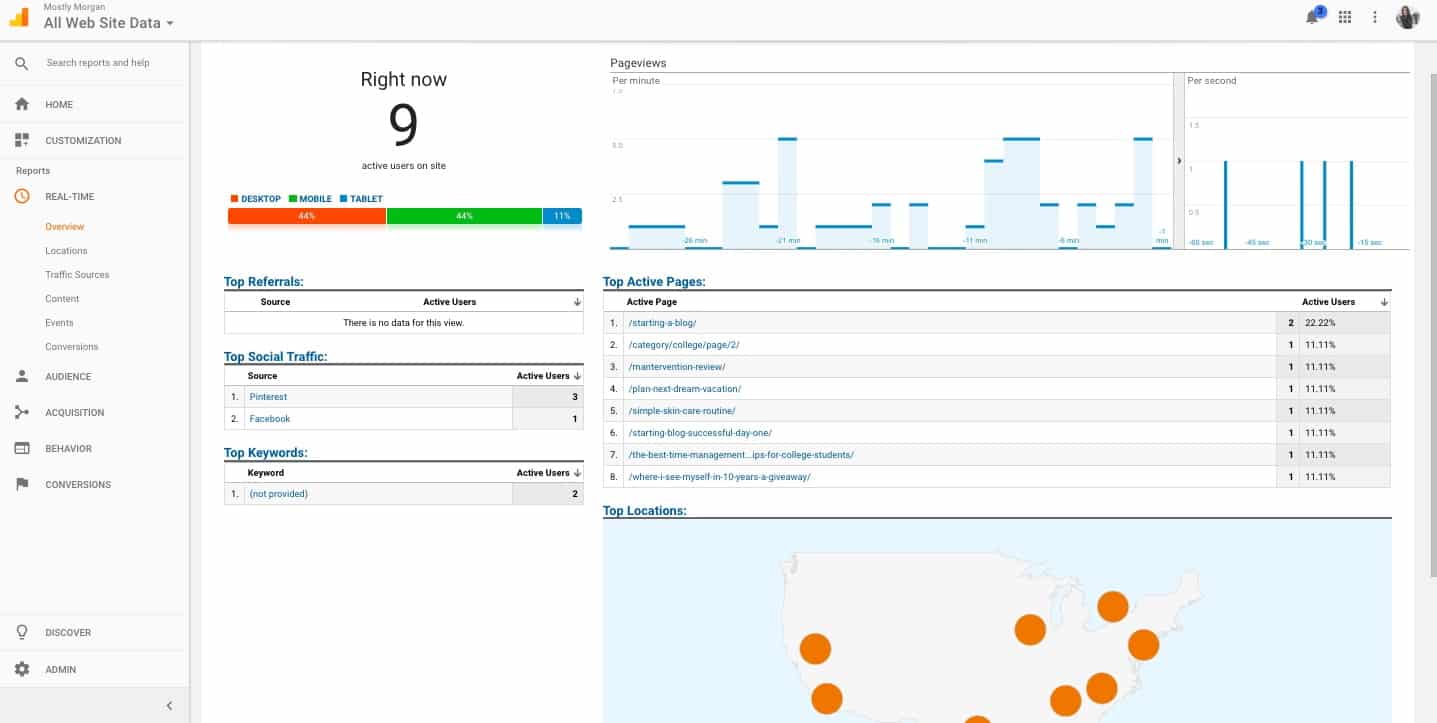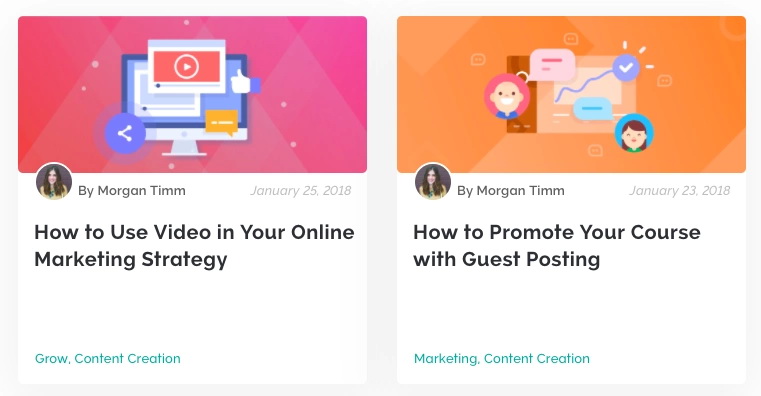Why all bloggers should create a course


In years past, making money blogging meant pulling in an extra forty dollars from sidebar ads each month, but now? Bloggers are making full-time livings through the influence they’ve built.
We’ve talked about how bloggers make money in the past, using strategies like brand sponsorships and affiliate marketing, but recently, more and more bloggers are creating online courses.
Bloggers are expert content creators, so for most of them, creating an online course is a fun change of pace. More importantly, it’s a powerful strategy to diversify income and skyrocket their earning potential.
Why all bloggers should create an online course
If you’re blogging to earn an income, whether it’s full-time or supplemental, incorporating an online course into your monetization strategy should be a priority.
Online courses give you control of your income
I’ve been a blogger for nearly five years now, and if I’ve learned anything, it’s that working with brands is a rollercoaster. One month you’ll earn more than you ever have, and the next month it’ll be next to nothing. Brand’s budgets are constantly fluctuating, and in a world of bots and fake followers, brands are trusting bloggers less and less.
Creating your own product puts the control back into your hands. How much you make will depend on how much you market your online course and how often you launch.
Seasoned course creators can look at how much their audience has grown since their last launch, and predict how much they’ll make from their next launch. That type of stability and predictability can give bloggers the confidence they need to quit their jobs and jump into blogging full-time.
Bloggers already have an audience
The beauty in selling courses as a blogger is you’ve already created an audience and you’ve already established authority in your niche.
Whether you’re a food blogger, fashion blogger, parenting blogger, or anything in between, your audience already trusts you to speak on that topic.
Creating and charging for an online course in your niche is a natural progression to providing free content for growing your audience, and one that most audiences will be receptive to.
When you launch your product to your email list, we find that usually at least 2% of your list will convert.


That might not seem like a lot, but with a list of just 1000, you’ve got 20 customers buying a $300 course and you just earned $6,000!
You can quickly validate your course ideas
One big part of creating your online course is making sure that people will actually be interested in your online course.
This can be especially tricky if you’re starting from scratch.
As a blogger, though, you’ve already created content and you’ve got analytics on your side. Bloggers can decide whether their audience would be interested in a course idea by checking their Google Analytics.


And if you don’t know what you want to create an online course on yet, you can check your ten most popular posts and see if any of those can be turned into an online course.
You’re already established on Google
Even if you’re a newer blogger and haven’t ended up on the front page of Google, you’re still leaps and bounds further than people starting their online businesses from scratch.


And if you have been blogging for a while and have posts ranking on Google, creating an online course around one of those posts and promoting it within the post can help you passively convert customers.
People stumbling on a blog post from Google aren’t quite as primed to purchase as loyal audience members, but having that visibility doesn’t hurt.
Related post: How to Use and Understand SEO as a Beginner
Bloggers have already created content
Bloggers are content creators, and here at Teachable, we’re huge advocates of repurposing content you’ve already created and turning it into an online course.
Bloggers can use posts they’ve already written as outlines or scripts for their online course videos.


This is one of the main reasons that we see bloggers being able to create online courses so quickly. One of the most time-consuming parts of creating an online course is the researching and scripting, and many bloggers have already done that through creating blog posts.
Online courses are evergreen assets
Due to their evergreen nature, you can sell an online course over and over again. You don’t have to worry about constantly reaching out to brands or plugging new products on your blog.
Instead, you can just relaunch the online course you’ve already created.
Promoting your online course with your blog
As we mentioned, you’ve got a unique advantage as a blogger. You already have an audience, and your blog can serve as a powerful promotion tool.
Once you’ve launched your online course, you can start selling on autopilot by optimizing your blog to drive sales.
Add your sales page to your navigation bar
Add a link to your sales page on your navigation bar. You can use language such as “shop” or “courses” and when people click through it will take them to your Teachable sales page.


Mention your course in relevant blog posts
Once your course is live, go through blog content you’ve created in the past. Mention your course and link to your sales page in any relevant posts.
This can oftentimes be even more valuable than creating a brand new blog post to promote your online course because your older posts have had more time to gain traction on Google.
You should also mention your online course in all of your permanent blog pages, like your “about me” page. The more links you have pointing to your business, the more likely your audience will click through and become a customer.
Related article: Leverage Your Instagram Followers into Mini-Course Enrollees
Offer free resources on your posts
As great as blogs are, your email list is always going to be your most valuable asset when it comes to converting sales.
People might land on your blog and not be ready to pay for an online course, but they will give you their email addresses in exchange for a free resource.
These resources, or content upgrades, should be tangentially related to your online course.
For example, if you paid course is How to Get Out of Debt in 18 Months, your free resource could be a downloadable debt tracking spreadsheet.
The people who sign up for your freebie are clearly interested in getting out of debt, so once they’re on your list, you can start warming them up and marketing your course to them.
Create your online course
Bloggers often feel like they can’t be successful course creators because they already give so much away for free. The reality is, it’s because bloggers created so much free content for their audience that they’ve established trust and loyalty.